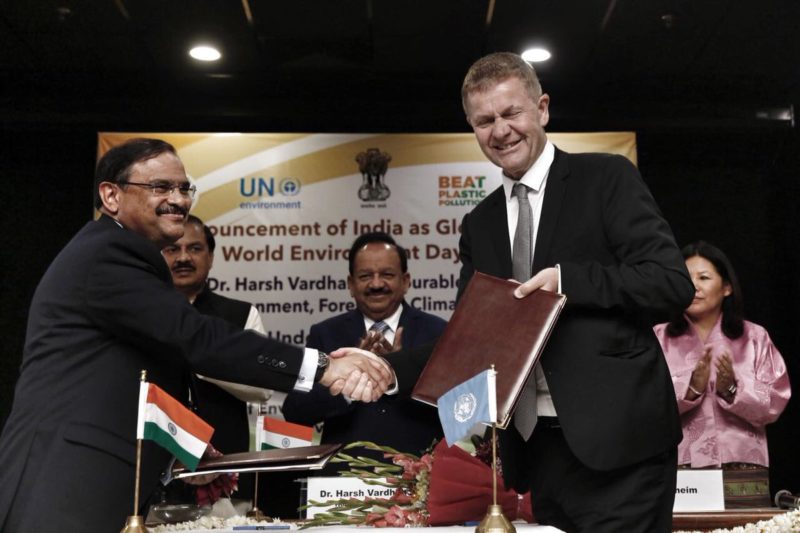India has been announced as hosts of World Environment Day 2018, which will be observed on Tuesday, June 5.

The global celebrations will be used to raise awareness of plastic waste and find ways to reduce the prevalence of single-use plastics. It has “Beat plastic pollution” as its theme.
The announcement was made on Monday, February 19, by UN Environment and India’s Environment Ministry in New Dehli.
Dr. Harsh Vardhan, India’s Minister for Environment, Forest and Climate Change, commented: “India is excited to host the World Environment Day this year. Indian philosophy and lifestyle has long been rooted in the concept of co-existence with nature. We are committed to making Planet Earth a cleaner and greener place.”
The World Environment Day was established by the UN in 1972 to raise environmental awareness and action. Last year’s day, led by Canada, had the theme: “Connecting people to nature”.
As part of its duties as hosts, India will organise and lead initiatives around the country on plastic waste and clean-up. This will include activities in public spaces, national reserves, beaches and forests to help drive national interest in the issue.
Erik Solheim, Head of UN Environment, said at the announcement on Monday that India will be a “great global host”. In a Twitter message, he described “India’s leadership on reducing plastic pollution” as “absolutely critical!”
His words: “The country has demonstrated tremendous global leadership on climate change and the need to shift to a low carbon economy, and India will now help galvanise greater action on plastics pollution.
“It’s a global emergency affecting every aspect of our lives. It’s in the water we drink and the food we eat. It’s destroying our beaches and oceans. India will now be leading the push to save our oceans and planet.”
According to the UN Environment, India has the highest recycling rates in the world, and is well-placed to help accelerate changes to solve plastic pollution. It is estimated that 500 billion plastic bags are used every year around the world, and that 50 percent of the plastic used is single-use.
